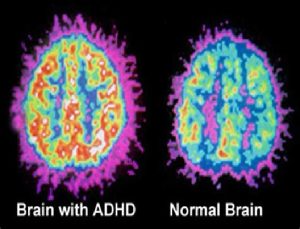Living with Borderline Personality Disorder (BPD) presents unique challenges that impact daily life, relationships, and overall well-being.
In this article, we will explore the intricacies of BPD, including its causes, symptoms, diagnosis, and a holistic view of treatment options. From medication to therapy, discover effective strategies for managing and coping with BPD.
Understanding Borderline Personality Disorder
Borderline Personality Disorder (BPD) is a mental health disorder that causes self-image issues, emotional instability, and difficulties in forming stable relationships. Individuals with BPD often experience an intense fear of abandonment, leading to impulsive behaviors and mood swings.
Causes of BPD
Unraveling the causes of BPD involves a multifaceted exploration of genetic, environmental, and social factors. While no single cause can be pinpointed, research suggests a strong hereditary component, indicating that individuals with a family history of BPD may be at an increased risk.
Environmental factors play a significant role, with unstable relationships, abuse, and neglect contributing to the development of BPD. Living in an environment characterized by instability or with a history of substance use disorder or criminal activity may heighten the risk. This intricate interplay between genetic predispositions and environmental influences underscores the importance of a comprehensive understanding of BPD causation.
Symptoms of Borderline Personality Disorder
The symptoms of BPD encompass a broad spectrum, manifesting in various aspects of an individual’s life. It is crucial to identify these symptoms at an early stage to ensure timely intervention and effective management.
Fear of Abandonment
Individuals with BPD often struggle with an intense fear of abandonment, leading to efforts to avoid real or imagined separation, sometimes resulting in impulsive actions.
Volatile Relationships
A hallmark of BPD is the presence of intense, unstable relationships. Individuals may oscillate between idealizing someone one moment and believing that person is indifferent or cruel the next.
Identity and Self-Image Changes
Rapid shifts in self-identity, goals, and values contribute to the tumultuous nature of BPD. Individuals may struggle with a distorted self-image, feeling as though they don’t exist or are inherently flawed.
Periods of Stress-Related Paranoia and Loss of Reality
Individuals with BPD may experience transient episodes of stress-related paranoia, during which they may exhibit a loss of contact with reality. These episodes can range from a few minutes to a few hours, adding a layer of challenge to daily life.
Impulsive and Risky Behavior
Impulsivity is a core feature of BPD, leading to engaging in risky behaviors with potentially severe consequences. From reckless driving and unsafe sex to spending sprees and substance abuse, these impulsive actions are often attempts to cope with emotional turmoil.
Suicidal Threats or Self-Injury
The distress associated with fear of separation or rejection can escalate to suicidal thoughts or self-harming behaviors. Individuals with BPD may resort to self-injury methods such as cutting, hair pulling, or burning as a way to cope with overwhelming emotions.
Erratic Mood Swings
BPD is marked by intense and unpredictable mood swings that can last from a few hours to a few days. These swings encompass a spectrum of emotions, ranging from intense happiness and irritability to overwhelming shame or anxiety.
Ongoing Feelings of Emptiness
A pervasive sense of emptiness is a common aspect of BPD. Individuals may feel unfulfilled, as if a fundamental part of themselves is missing, contributing to a persistent and profound emotional void.
Intense Anger
Individuals with BPD may struggle with managing intense anger, frequently losing their temper, expressing bitterness, or engaging in physical fights. The expression of anger can be disproportionate to the situation and may strain relationships.
Complications of Borderline Personality Disorder
BPD can significantly impact an individual’s ability to cope, leading to complications such as other mood disorders, substance use, eating disorders, and repeated hospitalizations. Navigate the potential complications of BPD with timely intervention and support.
Diagnosis of Borderline Personality Disorder
Diagnosing BPD involves consultation with a mental health provider. Psychiatrists, psychologists, clinical social workers, or psychiatric nurse practitioners may conduct assessments, considering medical history, symptoms, and family history. A physical exam helps rule out other illnesses, ensuring an accurate diagnosis.
Treatment for Borderline Personality Disorder
Effective Treatment for BPD is vital for improved well-being. Psychotherapy, including cognitive-behavioral and dialectical behavior therapy, stands as a cornerstone.
Medications, such as neuroleptic and atypical antipsychotics, antidepressants, and antianxiety drugs, may complement therapy. In severe cases, hospital care may be necessary.
The Role of Therapy in BPD Treatment
Therapy stands as a cornerstone in the comprehensive treatment of BPD, offering individuals a path towards understanding, managing, and ultimately healing from the challenges associated with this complex mental health condition. The multifaceted nature of BPD necessitates a nuanced therapeutic approach, empowering individuals to navigate the intricacies of their emotions and behavior.
Medication
Although there are no specific medications widely advertised for BPD it is a myth that there are no medications that can help. Many people with BPD take medications and get much benefit from the symptoms that can be very painful. Mood stabilizers, anti-psychotics, and some anti-depressants can be helpful and there are always more medications on the market to help. Medications can be a long and difficult journey as trying different ones and giving time in between before the next medication to try when one does not work or having more than one at a time can make it difficult to know which one is working or not working. None the less, this is not a reason not to go down this path if life is really painful and especially if your are having suicidal thinking. Medication is thought of to be perhaps 20% of the battle. Medication can get us up out of bed to get to the therapies important for our recovery. Medication alone is not enough as we need to do all the things that support our wellness like exercise, therapy groups, eating healthy and sleeping etc. Medication can work together with these things to bring about lasting wellness.
Dialectical Behavior Therapy (DBT)
DBT is a specialized therapy designed for individuals with borderline personality disorder. The approach emphasizes developing practical skills, such as emotion regulation, mindfulness, stress tolerance, and interpersonal effectiveness, to help individuals navigate challenging situations and reduce impulsive behaviors.
Cognitive Behavioral Therapy (CBT) VS DBT
Although CBT was part of where DBT got it’s beginnings, it is very different from CBT. CBT goes at the “thinking” part of the brain whereas DBT goes at the “emotion” centre of the brain. This limbic/amygdala part of our brain is where we get our fear / survival response of fight, flight freeze, hide mode and where persons with BPD reside a lot of the time in what we call “Emotion Mind” in DBT and it can be an exhausting place to be much of the time. Our pre-frontal cortex at the front of our brain is responsible for emotion regulation, impulse control, knowing what is real/not real and true or not true, making good decisions and more rational thought. Now here is what is interesting; When we are in a state of heightened emotion mind and having intense stress the prefrontal cortex disconnects and the emotion mind runs the show. Can you imagine being in this mind state all the time? You may be losing control when you are angry, can’t regulate your emotions, being impulsive, doing dangerous things, engaging in unhealthy behaviours (in an attempt to self regulate/medicate). Now, getting back to CBT vs DBT. As we have mentioned, CBT goes at the thinking part of our brain however if we are walking around most of the time in emotion mind in a state of stress we don’t have access to that part of the brain to do thought records, identify our “hot” thoughts, think about how we can think differently about a situation and change our thinking/behaviour. It is impossible to do CBT in this state. So, DBT goes at the emotion centre of the brain and helps to heal/reduce the intense emotions that have caused the prefrontal cortex to disconnect. This is also explained by Dan Siegal’s “Flip your Lid” readings which uses your fingers curled around your thumb with your thumb being the emotion centre and the fingers/hand over the thumb as the prefrontal cortex so when you spread out your whole hand with all fingers showing you have essentially “flipped your lid” or disconnected your prefrontal cortex from your amygdala (thumb) It does not mean that CBT can’t be an beneficial therapy, it just means that it is best done after you have learned some DBT skills which helps us to reduce intensity on our emotions thereby bringing back in line our prefrontal cortex (for better impulse control, emotion regulation, better decision making and less behaviours that can harm us to cope).
Schema-Focused Therapy
Schema-focused therapy addresses the distorted self-image that often plagues individuals with BPD. This approach helps individuals recognize and transform negative self-beliefs, promoting a more optimistic and adaptable self-concept. By challenging deeply ingrained negative beliefs, individuals can reshape their self-perception. It is interesting to identify which “schemas” you built growing up and how we can change how these schema’s have us behaving in the present moment. This type of therapy can help us see why we behave in certain ways and in certain situations. It does not however help us to use sills to help us change how we react to things and manage the distress of the trauma that comes from certain “schemas” This therapy is a good additional therapy to do once you have learned some ways of grounding, mindfulness, how to build and maintain healthy relationships and how to regulate in times of distress and day to day.
Family Therapy and Families learning DBT
Recognizing that BPD affects not only the individual but also those in their immediate circle, family therapy can play a crucial role. Therapy aims to create an environment conducive to the individual’s healing and growth by fostering understanding, communication, and support within the family unit. This can be done best by first teaching and offering support to families before bringing the family together. This approach better equips families with the understanding, compassion and skills to cope with a family session.
Individual DBT Therapy and Group Therapy
Group therapy is the most important piece of the program as it is where you learn the skills together with others who share in the same challenges you do. DBT Individual therapy is all about diary carding where you track at least 4 things: your feelings (anger, sadness, fear, guilt, etc); your urges to act on target behaviours (self harm, rumination, angry outbursts, substance use, gambling, disordered eating and others); whether you did act on target behaviours and which one(s); and lastly, which skills you used that day to help you cope, if any. If you are not doing diary carding, It’s NOT DBT. Further, in one on one DBT therapy when you engage in a target behaviour your therapist will walk you through a behaviour analysis which takes you minute by minute working up to acting on the target behaviour which helps you see patterns and realize that behaviours are not 0 to 60 and we can see where things started going off the rails which is often way before you actually engage in that behaviour. While individual therapy offers a one-on-one setting for personalized exploration and intervention, group therapy provides a supportive community where individuals learn from others facing similar challenges which is a powerfully peer healing environment. Combining both approaches often proves beneficial, offering a well-rounded therapeutic experience. At Dialectical Living you can sign up for the group online as they are posted and if you want one on one therapy we need to set up a consultation for a full assessment and orientation to the commitment of individual therapy. You can book here if you would like time with a DBT Therapist to answer your questions and provide more information, inspiration and support!
Integrative Approaches to BPD Management
BPD management goes beyond conventional therapeutic interventions, encompassing a holistic approach that acknowledges the interconnected aspects of an individual’s well-being. Integrative approaches strive to cultivate a sense of balance, resilience, and self-awareness, fostering a comprehensive strategy for managing BPD.
Mind-Body Practices
Incorporating mind-body practices, such as mindfulness meditation and yoga, can be transformative in BPD management. These practices encourage individuals to cultivate awareness of their thoughts and emotions, promoting emotional regulation and reducing the impact of stressors on overall well-being.
Nutritional Support
A balanced diet rich in essential nutrients can positively influence mood and energy levels, contributing to a foundation for emotional stability.
Exercise and Physical Activity
Regular exercise is a great way to manage BPD, as it supports physical health and helps regulate mood by releasing endorphins. Finding enjoyable and sustainable forms of physical activity contributes to a holistic approach to well-being.
Art and Expressive Therapies
Integrating art and expressive therapies, such as painting, music, or dance, provides alternative channels for emotional expression. These creative outlets empower individuals to communicate and process emotions nonverbally, fostering self-discovery and healing.
Alternative Healing Practices
Holistic modalities, including acupuncture, massage therapy, and energy healing, offer complementary approaches to traditional treatments. These practices aim to restore balance within the body and mind, providing individuals with additional tools for managing stress and promoting relaxation.
Peer Support and Community Engagement
Connecting with individuals who’ve had similar experiences can provide valuable support. Peer-led groups, online communities, and local networks can offer a sense of understanding and camaraderie, reducing feelings of isolation commonly associated with BPD. Dialectical Living offers a FREE DBT Aftercare group.
Nature Therapy
Spending time in nature has therapeutic benefits for mental health. Nature therapy, or ecotherapy, encourages individuals to connect with the outdoors, promoting a sense of calm, grounding, and rejuvenation.
Journaling and Self-Reflection
Integrating journaling and self-reflection practices supports emotional awareness and insight. Documenting thoughts and feelings provides a tangible record of one’s emotional journey, facilitating a deeper understanding of triggers and patterns.
For a deeper dive into the complexities of BPD causes, explore insightful content and expert perspectives at Dialectical Living. Gain valuable insights into the factors shaping BPD and how individuals can navigate these influences on their mental health.
Borderline Personality Disorder Treatment Available Online
Please get in touch with us if you or a loved one have any concerns regarding Dialectical Behavioral Therapy or any of the treatments provided by Dialectical Living.
To start your treatment, contact our office to talk with one of our staff or book a consultation today!





